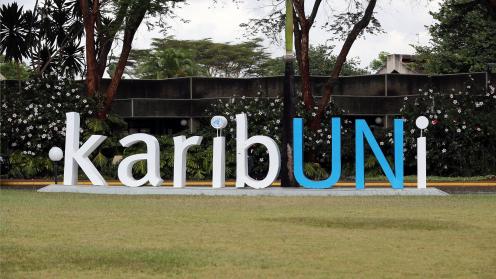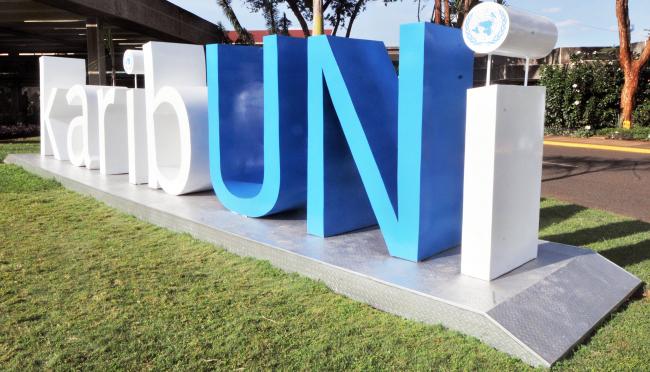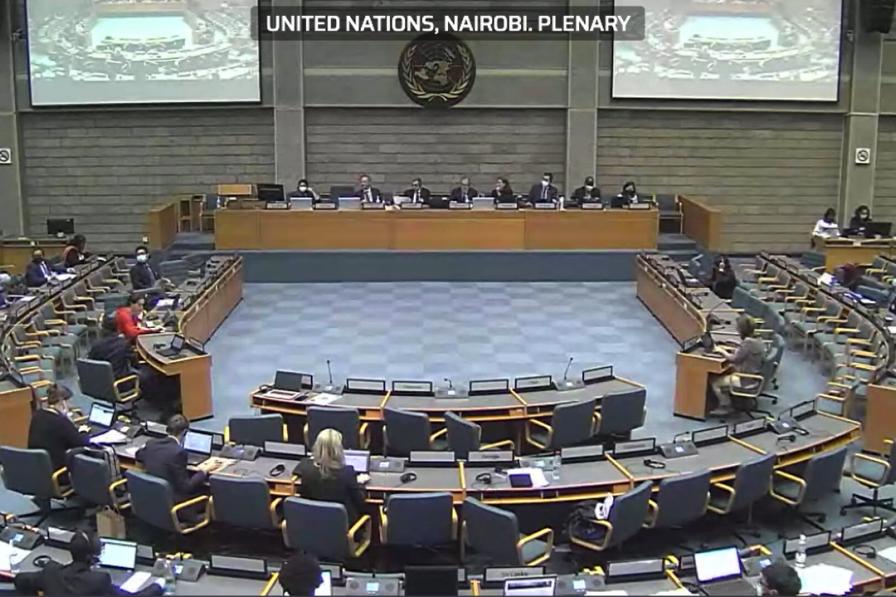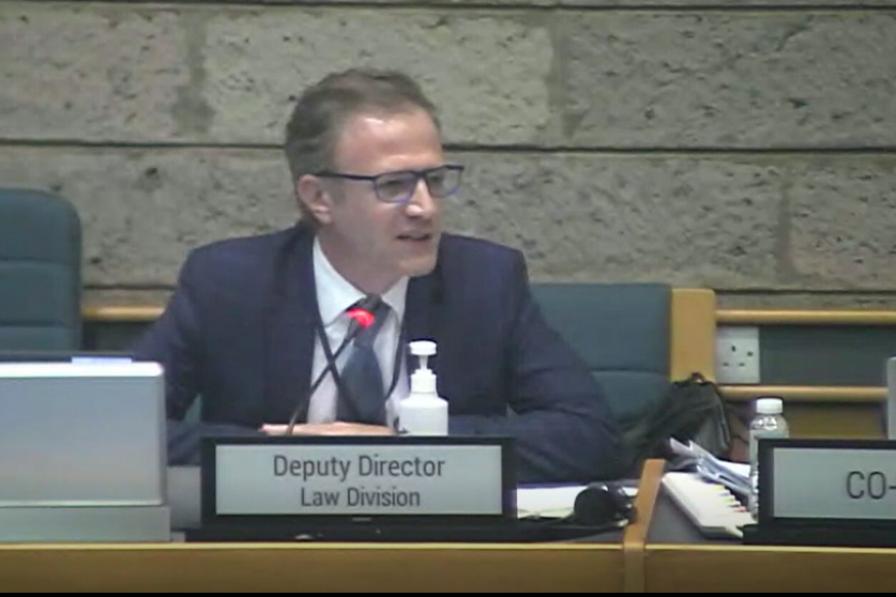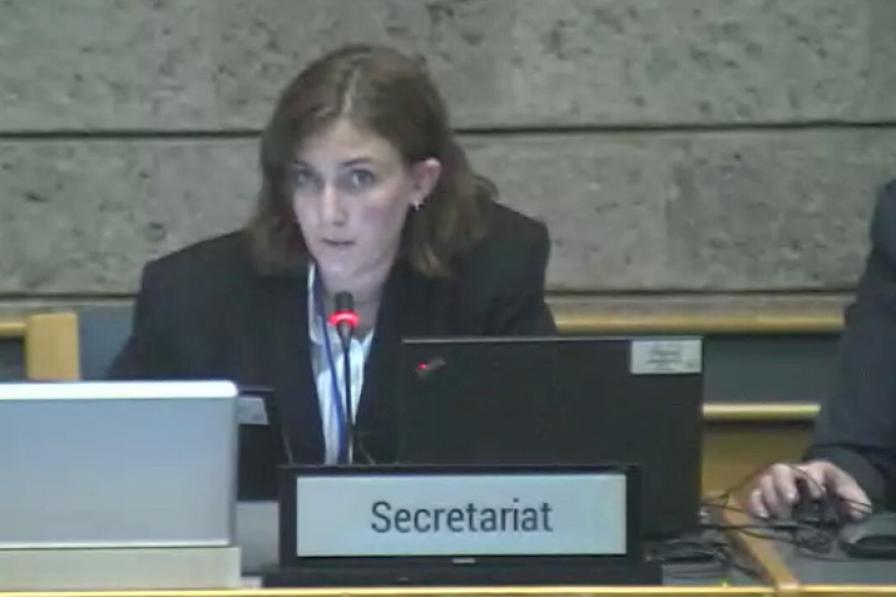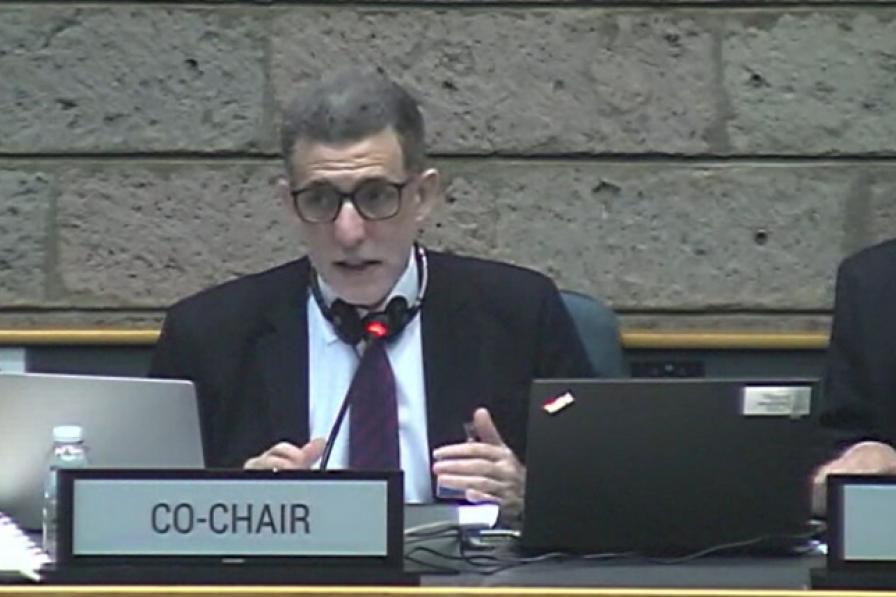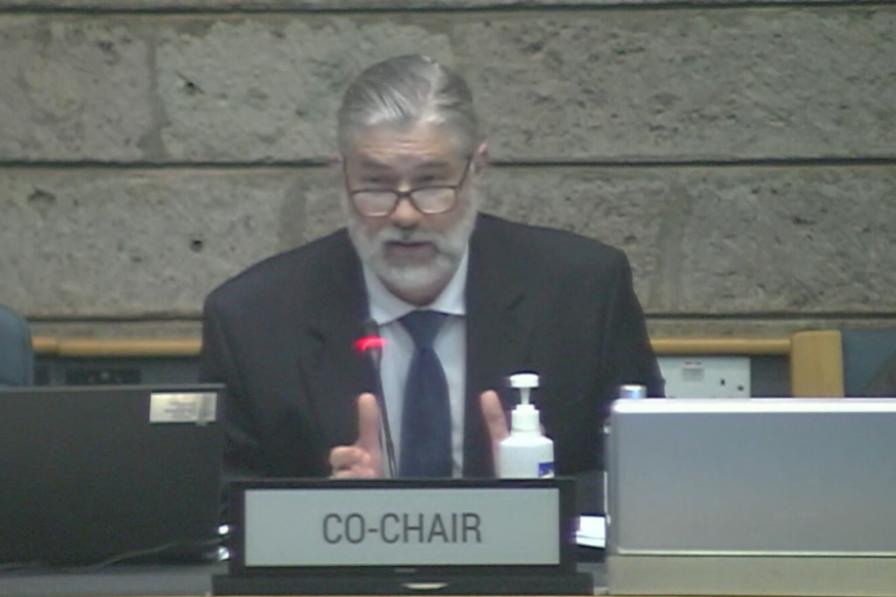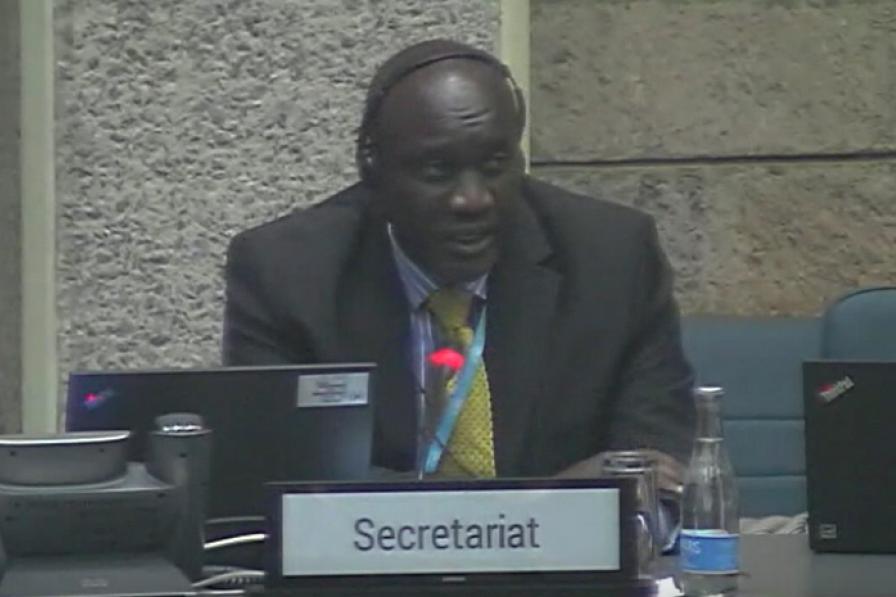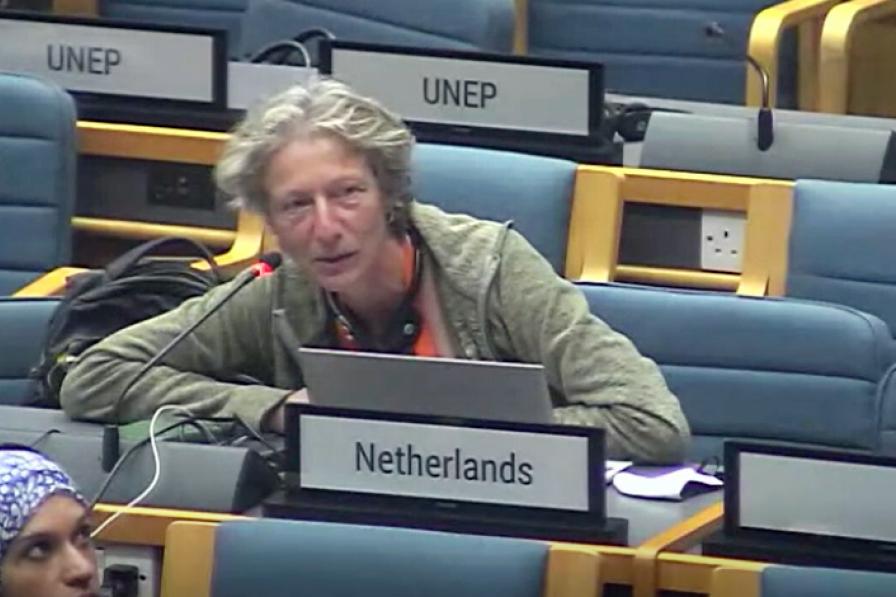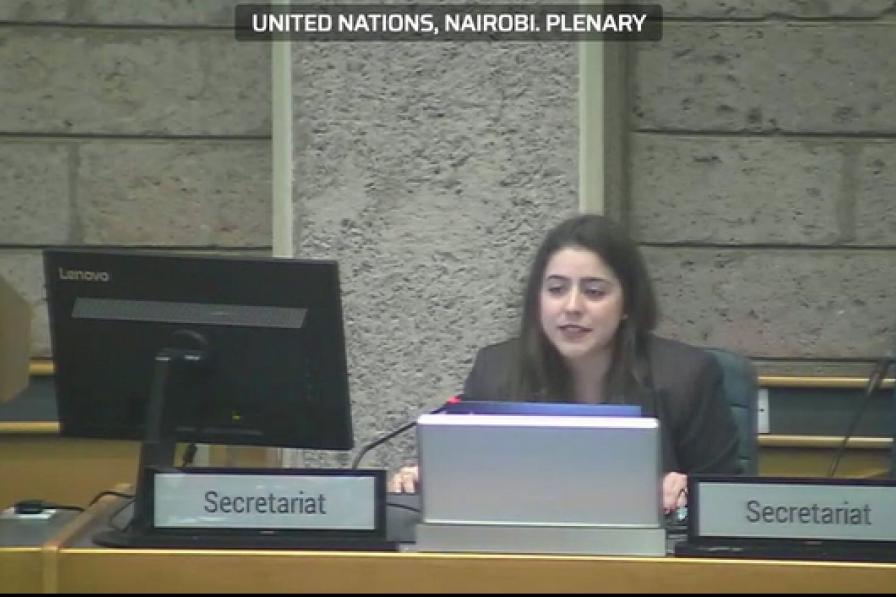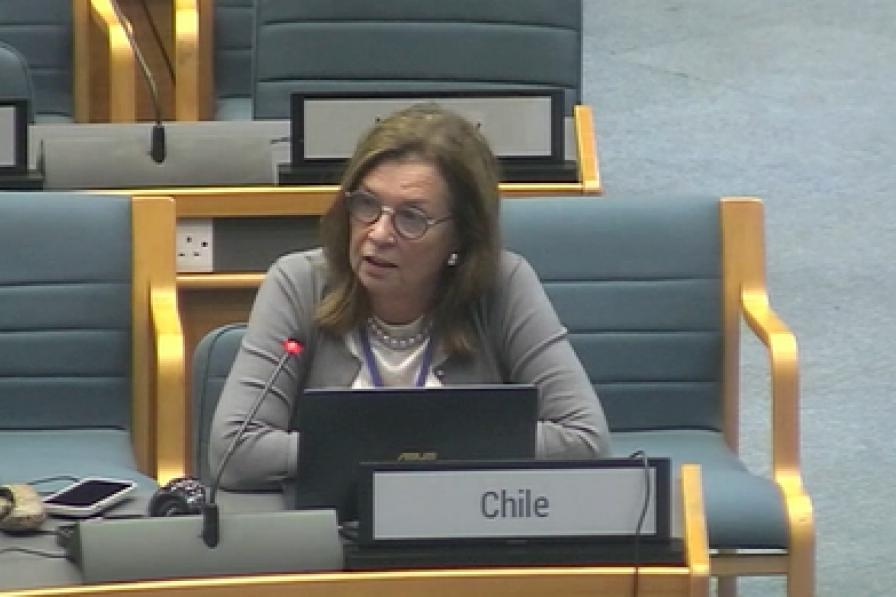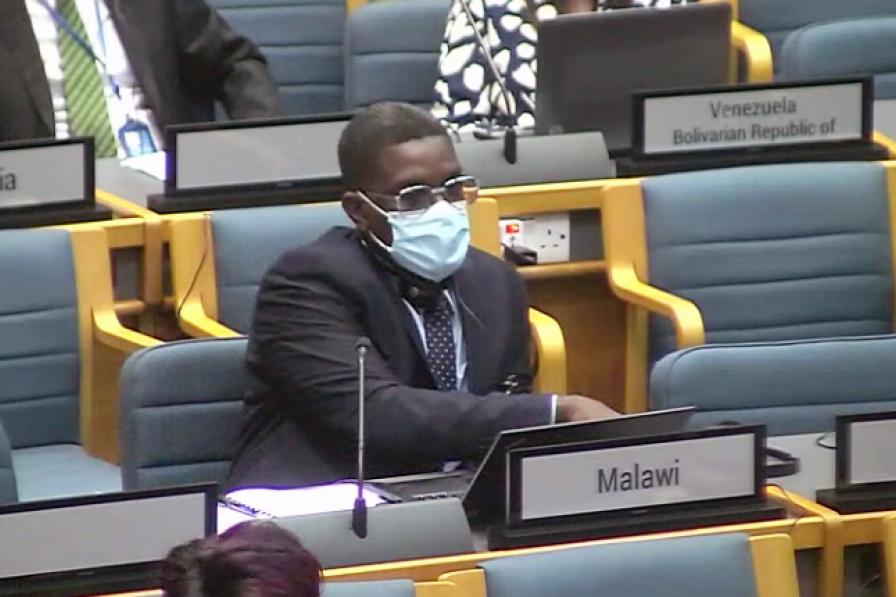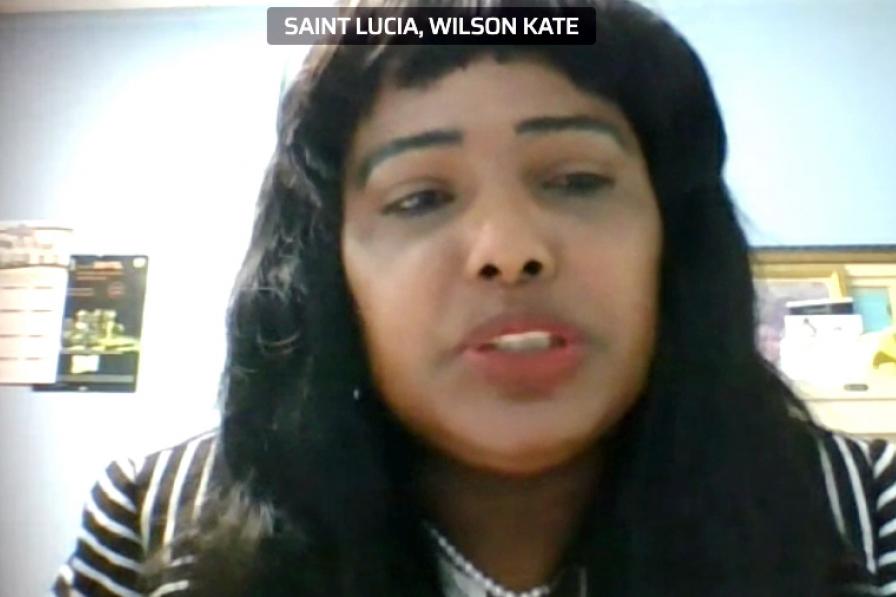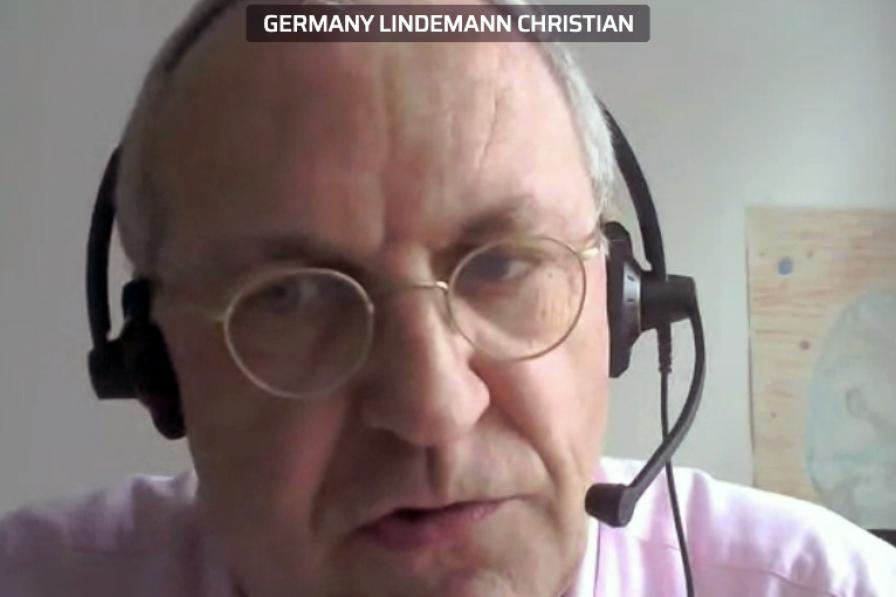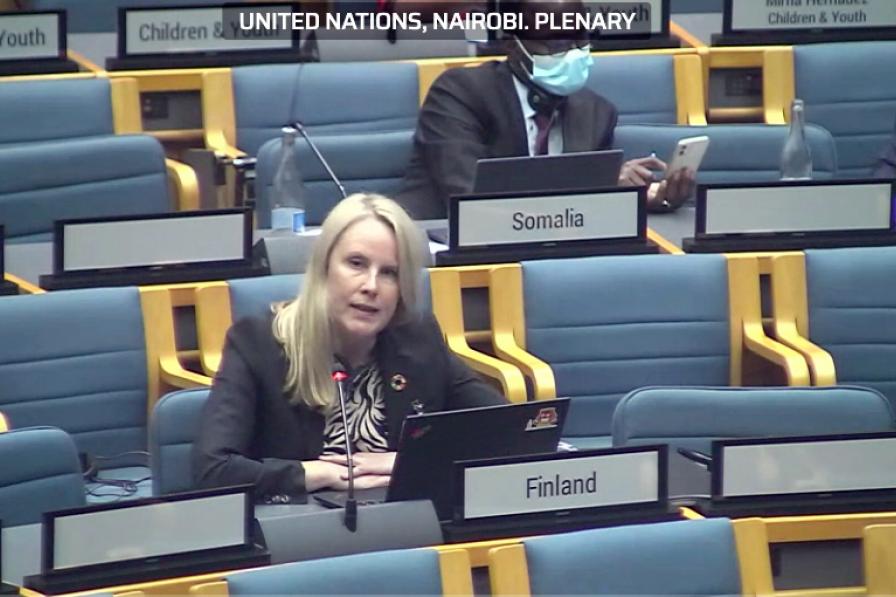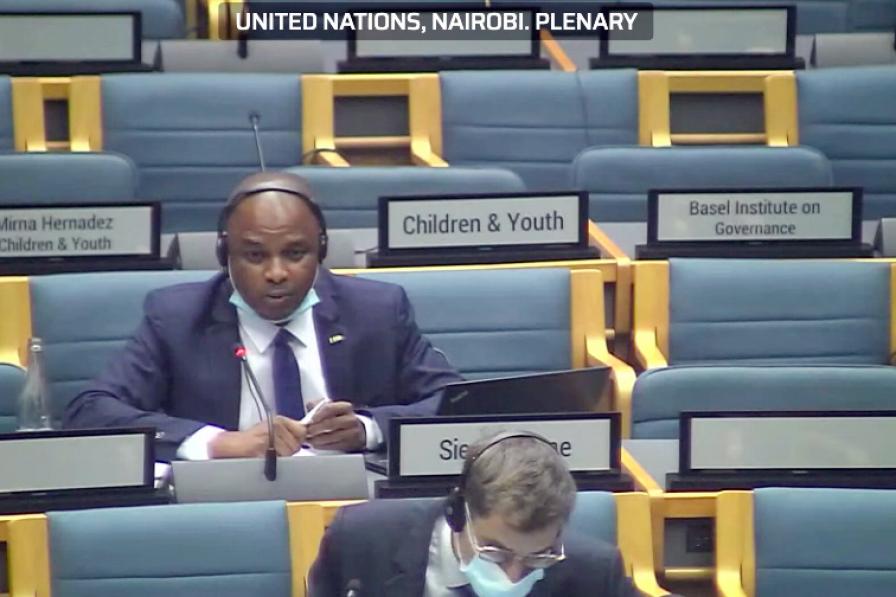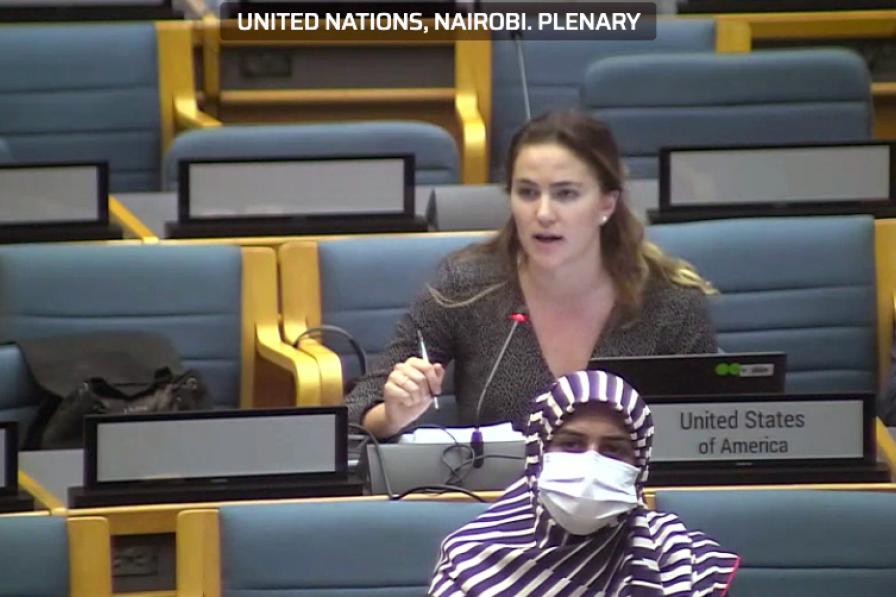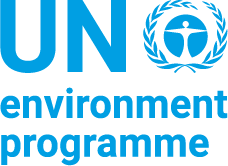The resumed First Global Meeting of the National Focal Points Under the Fifth Programme for the Development and Periodic Review of Environmental Law (Montevideo Programme V) focused most of its first day’s discussions on the Law and Environment Assistance Platform (LEAP), the online platform recently launched by the UN Environment Programme (UNEP) for Montevideo Programme V. Delegates also initiated discussions on priority areas for Programme implementation.
Opening remarks provided by UNEP’s Law Division Deputy Director Arnold Kreilhuber on behalf of the Director Patricia Kameri-Mbote highlighted that during its 40-year tenure the Montevideo Programme has played a “powerful and transformational role” in helping the formation of national environmental laws and the negotiation of several multilateral environment agreements (MEAs).
Noting the challenges and time constraints of a hybrid meeting, Meeting Co-Chair Timothy Epp (US) urged delegates to “focus on the practical,” particularly on defining priority areas for action, while considering measurable outcomes that are achievable within the 10-year timeframe of Montevideo Programme V.
Meeting Co-Chair Marcello Cousillas, Uruguay, highlighted how the fifth Programme differs from its predecessors, as it has a supervisory structure, an emphasis on measurable results, and a framework vision to be fleshed out by the selection of priority areas for action.
The Secretariat updated delegates on the development of LEAP, explaining that the platform provides information on Programme implementation, as well as on country environmental law profiles, an online form for requesting legal technical assistance, and a knowledge database containing, inter alia, guidance documents, model laws, policy briefs, e-learning courses, and reports and publications. Delegations generally praised LEAP, but offered suggestions for improving it, such as updating the country profiles in consultation with national focal points. Several delegates also requested clarifications about how the assistance request will function and how the process will work in practice. Many delegations described ongoing technical assistance requests or the intention to submit requests in the future, particularly in the ambit of air pollution legislation.
The Meeting initiated discussions on priority areas, with plans to spend the following day on the topic and consider a “non paper” by the co-chairs summarizing Wednesday's views. The Secretariat reviewed its proposal, based on a survey of national focal points, for three core issue areas reflecting the planet’s triple environmental crises: pollution, climate change and biodiversity, along with seven cross-cutting activity areas:
- strengthening information and data exchange and raising awareness of the role of environmental law;
- enhancing access to environmental information, public participation in environmental decision-making and access to justice in environmental matters;
- strengthening the relationship between environmental law and the three pillars of the UN Charter;
- strengthening education and capacity building in environmental law;
- strengthening regulatory frameworks regarding environmental, social and governance issues and the private sector;
- enhancing legal frameworks and their implementation on environmental liability; and
- preventing and combating environmental crime through the law.
Delegates reviewed work done on air pollution, the first priority area chosen by the Meeting’s virtual session in June 2021. Many praised UNEP’s ongoing work to develop guidelines for air pollution legislation which builds on UNEP’s First Global Assessment of Air Pollution Legislation findings.
On proposals for other work Programme areas, several delegates stressed sharpening the focus and prioritization, and developing measurable targets in time-bound roadmaps based on evidence and needs assessments. Many asked for indicative figures on funding needs in different areas of work. Some recommended stressing the linkages between the three suggested core areas, and prioritizing cross-cutting activities as they relate to the three core areas. On law implementation, several cautioned against overlapping or duplicating the work already done by MEA Secretariats.
To receive free coverage of global environmental events delivered to your inbox, subscribe to the ENB Update newsletter.
